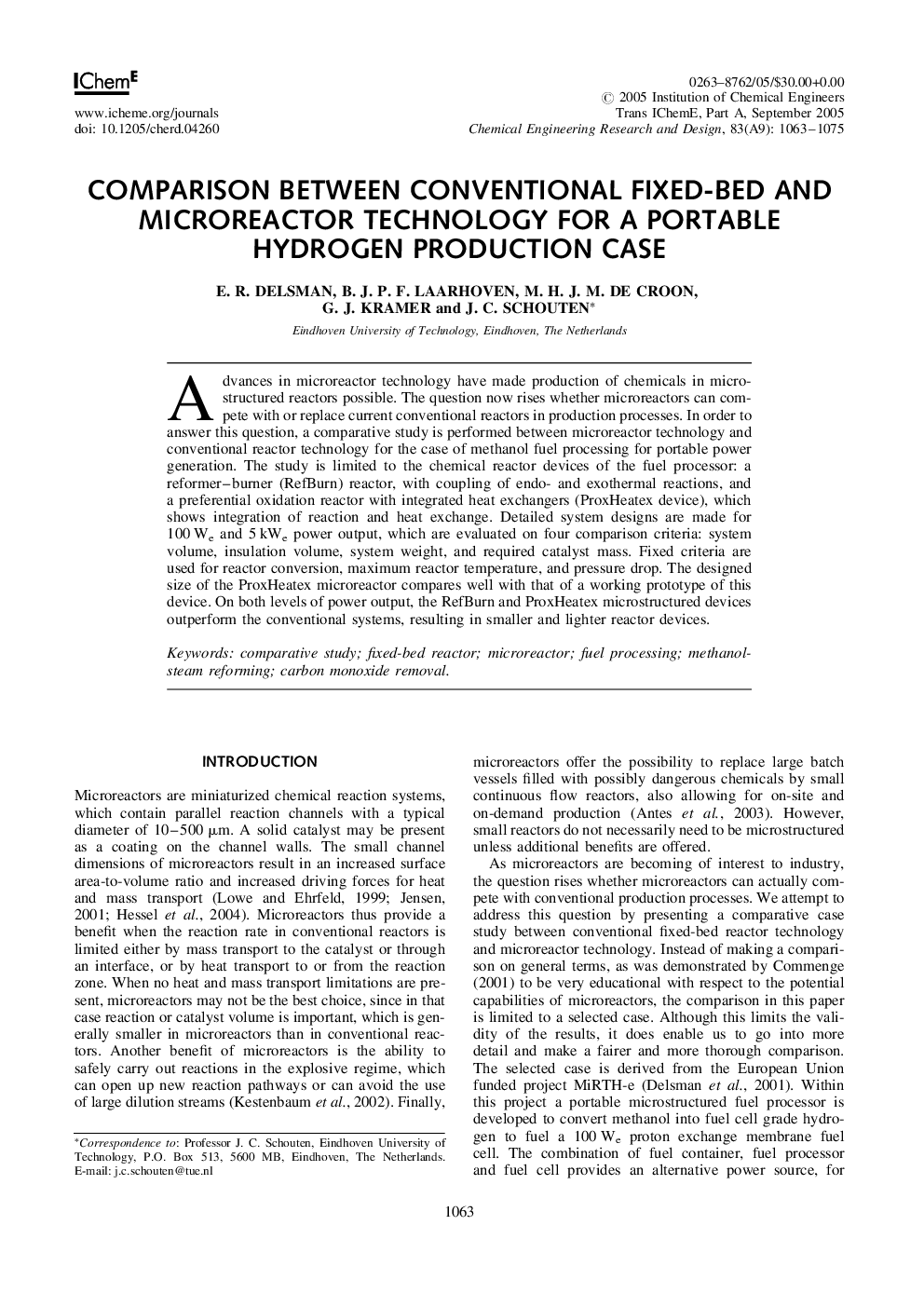| Article ID | Journal | Published Year | Pages | File Type |
|---|---|---|---|---|
| 10385735 | Chemical Engineering Research and Design | 2005 | 13 Pages |
Abstract
Advances in microreactor technology have made production of chemicals in micro-structured reactors possible. The question now rises whether microreactors can compete with or replace current conventional reactors in production processes. In order to answer this question, a comparative study is performed between microreactor technology and conventional reactor technology for the case of methanol fuel processing for portable power generation. The study is limited to the chemical reactor devices of the fuel processor: a reformer-burner (RefBurn) reactor, with coupling of endo- and exothermal reactions, and a preferential oxidation reactor with integrated heat exchangers (ProxHeatex device), which shows integration of reaction and heat exchange. Detailed system designs are made for 100 We and 5 kWe power output, which are evaluated on four comparison criteria: system volume, insulation volume, system weight, and required catalyst mass. Fixed criteria are used for reactor conversion, maximum reactor temperature, and pressure drop. The designed size of the ProxHeatex microreactor compares well with that of a working prototype of this device. On both levels of power output, the RefBurn and ProxHeatex microstructured devices outperform the conventional systems, resulting in smaller and lighter reactor devices.
Keywords
Related Topics
Physical Sciences and Engineering
Chemical Engineering
Filtration and Separation
Authors
E.R. Delsman, B.J.P.F. Laarhoven, M.H.J.M. De Croon, G.J. Kramer, J.C. Schouten,
